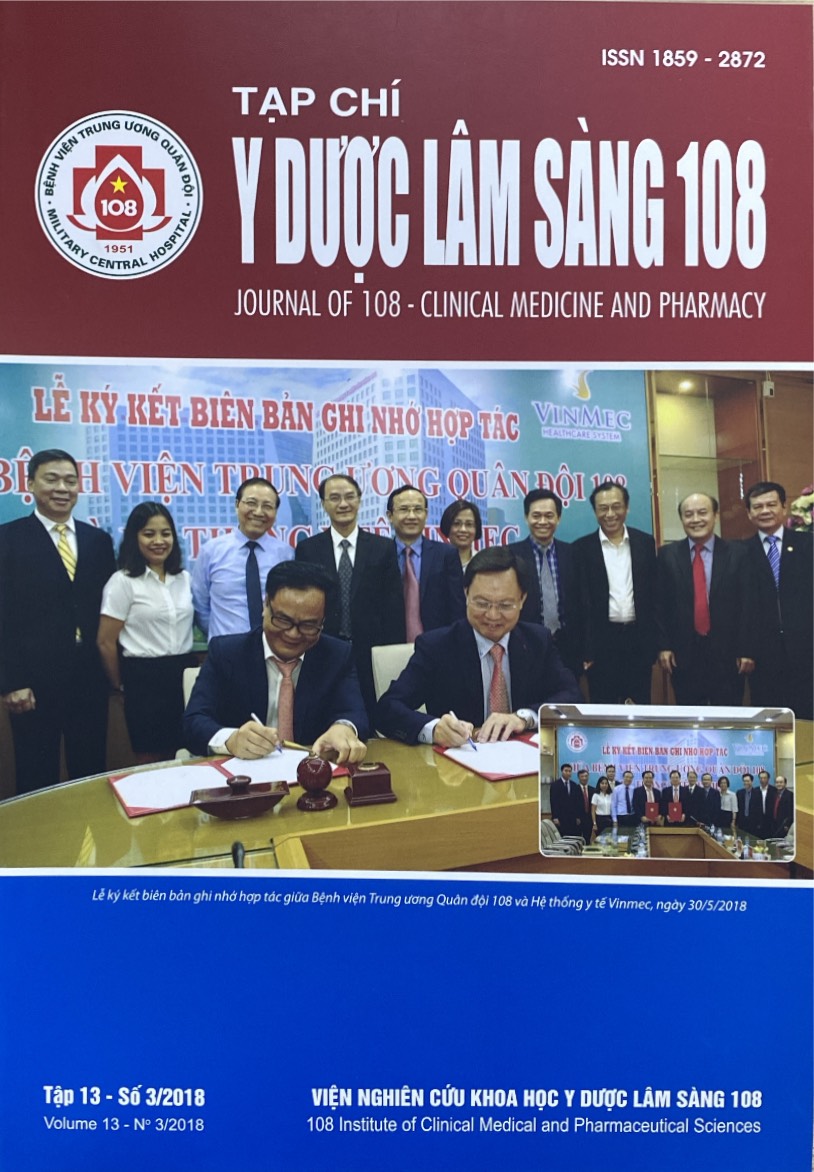Successful treatment of acute kidney allograft rejection with antithymocyte globulin: A case report
Main Article Content
Keywords
Abstract
New immunosuppressive protocols and advanced surgical technique resulted in a major improvement in the outcome of kidney transplantation. A 43-year-old, male patient diagnosed with chronic glomerulonephritis. After the kidney transplantation, he had an acute cell-mediated kidney rejection diagnosed by biopsy and ATG treatment was immediately performed. The graft kidney function recovered after 01 week. And then, the patient had sepsis complication with urinary tract source. The antibiotics prescribed were Meronem 2g/day plus levofloxacin 0.5g/day. Blood and urine culture results were Escherichia coli. Five days later, patient was fully recovered and discharged with normal clinical presentation and laboratory tests. Discussion: The acute T-cell mediated rejection is a severe and common complication after kidney transplantation. It has many risk factors. Treatment of this complication was effective with short-time ATG (5 days). Complications of septicemia after taking ATG in patients with acute rejection are rare, had some risk factors, severe, requiring immediately broad-spectrum antibiotic treatment. Conclusion: Using ATG in acute T-cell mediated rejection was strongly effective. However, the its infection complication also significantly increased, needed prognosis, detection and timely management (prevention, ready for emergency management).
Article Details
References
2. Bonatti H, Berger 2 N, Kafka R et al (2002) Experience with ATG short course high dose induction therapy in a series of 112 enteric drained pancreatic transplants. Annals of transplantation 7(3): 22-27.
3. Al NO, Rajput A, Martinezb E et al (2017) Acute rejection of a kidney transplant in a patient with common variable immunodeficiency: A case report. Transplantation Proceeding 49: 380-385.
4. Surg Capt MSN Murty, Surg Vice Adm VK Saxena, Col UK Sharma et al (2009) Renal transplantation: Experience at a single centre. MJAFI 65(1): 18-22.
5. Philip F, Halloran, Jonathan S, Bromberg, Robert L, Fairchild et al (2009) Chapter 6: Treatment of acute rejection. KDIGO Clinical Practice Guideline for the care of kidney transplant recipients, American Journal of Transplantation 9(3): 1-157.
6. Suphamai B, Michael CJ, Arthur H, Cohen et al (2010) Chapter 5 immunosuppressive medications and protocols for kidney transplantation. Handbook of Kidney Transplantation, 5th EDITION by LIPPINCOTT WILLIAMS & WILKINS: 77-126.
7. Peter JM, Stuart, Knechtle J (2008) Chapter 20: Antibodies and fusion proteins. Kidney transplantation: Principles and practice. Saunders - Elsevier Inc, 6th ed: 309-333.
8. Margaret B, Deborah B, Adey, Roy D, Bloom et al (2010) KDOQI US Commentary on the 2009 KDIGO clinical practice guideline for the care of kidney transplant recipients. Am J Kidney Dis 56: 189-218.
 ISSN: 1859 - 2872
ISSN: 1859 - 2872
